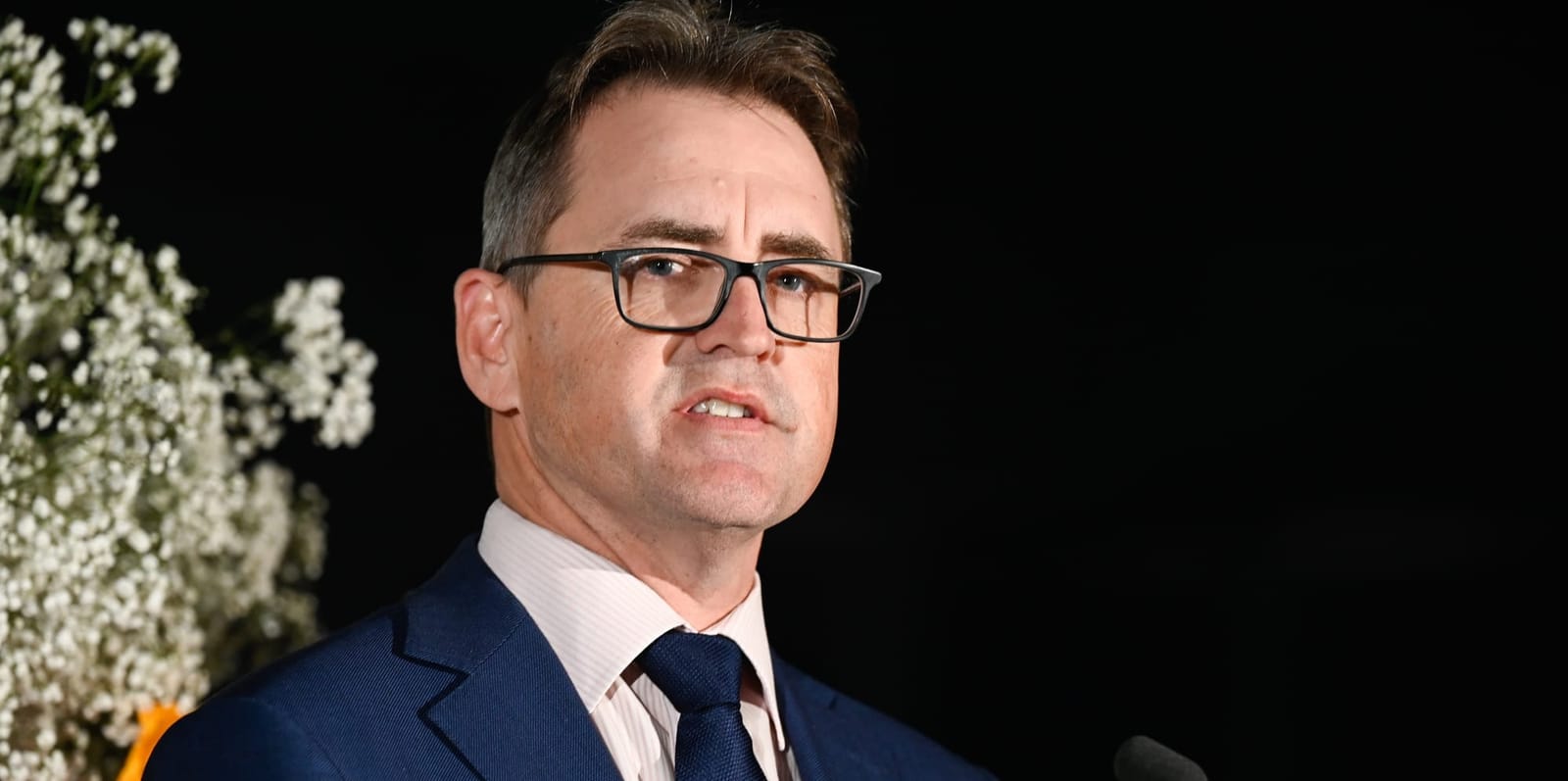If the torrent of criticism directed at Racing Victoria CEO Andrew Jones in recent months by industry participants is undermining his confidence in doing his job, he is certainly not showing it.
Jones fronts a chat over a coffee on the Gold Coast with The Straight with the confidence of a man with conviction in the direction he is taking the Victorian industry, despite those who may think otherwise, and constant rumours of his demise.
“I can’t control what other people think of us and what we are doing. Our job is to grow the sport and we will keep doing that and I trust that we will be judged on our results,” he said.
The one-time cricket executive and management consultant describes his approach to the challenges which face Racing Victoria as ‘sanguine’.
Less subtle words are used by those who object to a range of decisions he and his executive team have made since he took on the role in July 2022. ‘
Innovations like the 10th Saturday metropolitan race, the movement of key features such as the Thousand Guineas as well as suggestions that jockeys could be mic’d up during races and Big Bash style teams in racing have all drawn significant criticism along with the way prizemoney has been allocated.
But Jones doesn’t seem like someone who readily questions his own judgement. He is resolute in what he says is his key purpose.
“We wake up every single day trying to work out how to grow racing. If we grow racing then we can accommodate the reasonable desires and expectations of stakeholders,” he said. “If it shrinks, it can quickly become Mad Max, you are fighting over what is effectively a diminishing supply of petrol.”
The apocalyptic tone of the language may seem slightly out of character for a man who appears to favour measure in his words, but he can abandon subtlety when it suits, such as when he said during a radio interview that he didn’t care what participants thought of him.
He assumed the CEO role in a time of declining racing revenue, meaning he has had to battle participant priorities in competition with what he sees as his main role of ‘growing racing’.
“What we need to do to grow the sport is make sure that racing has the most fans possible. They are the people who punt on the sport, they are the people who become owners in the future,” he said.
“It’s then a question of how those spoils are divided up between owners, trainers and jockeys, clubs, and all the various stakeholder groups.
“We are doing that in the context of a correction in wagering, Wagering is down 10 percent on last year and that’s a material amount of revenue for the industry and it reflects changed economic circumstances.
“It also puts us on notice that we have to be really active in growing the sport.”
Jones’ most public critic has been the Thoroughbred Racehorse Owners Association (TROA) and its chairman Jonathan Munz, the billionaire businessman who in December said Jones was “doing a terrible job and needs to be sacked”.
Munz also accused RV of pursuing a “misconceived, radical strategy that has alarmed industry investors and participants”.
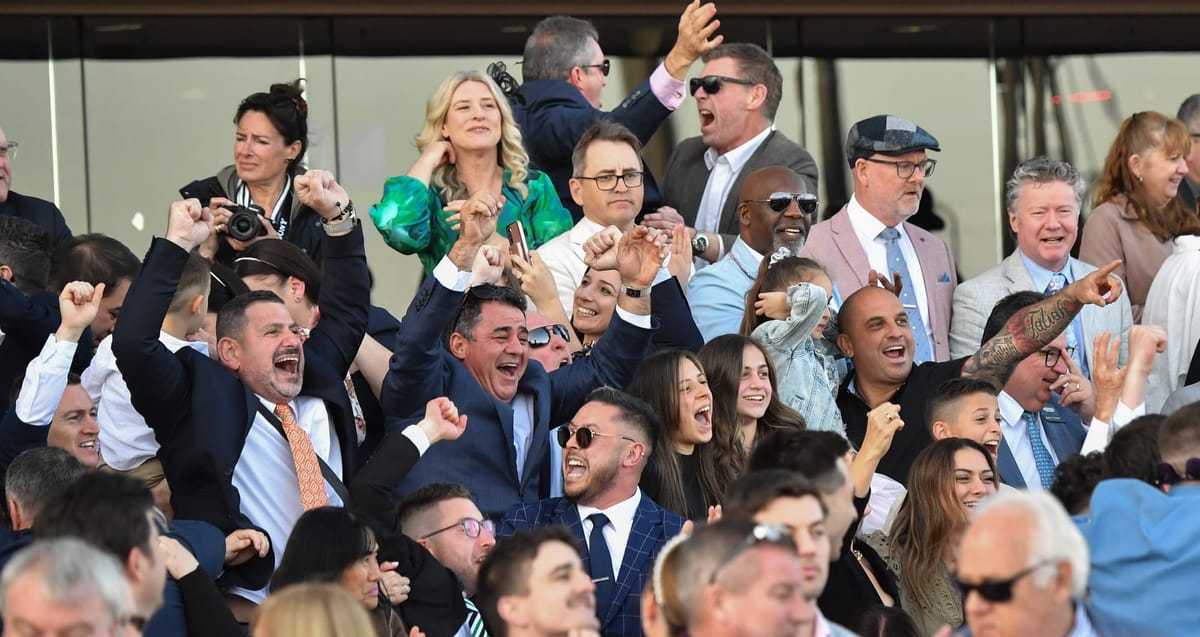
Other participants, including the Australian Trainers’ Association, Thoroughbred Breeders Victoria and the metropolitan clubs have all raised issues over what they say is a lack of consultation from Racing Victoria, and Jones in particular, on major changes.
Jones has a direct answer to those complaints.
“There is a difference between a lack of consultation and a difference of opinions. Mostly what we are talking about is a difference of opinion rather than a lack of consulting,” he said.
“There are differences of opinion almost within every topic in racing. There are differences of opinions within individual stakeholder groups. Owners aren’t a uniform group, neither are trainers, jockeys or race clubs,” he said.
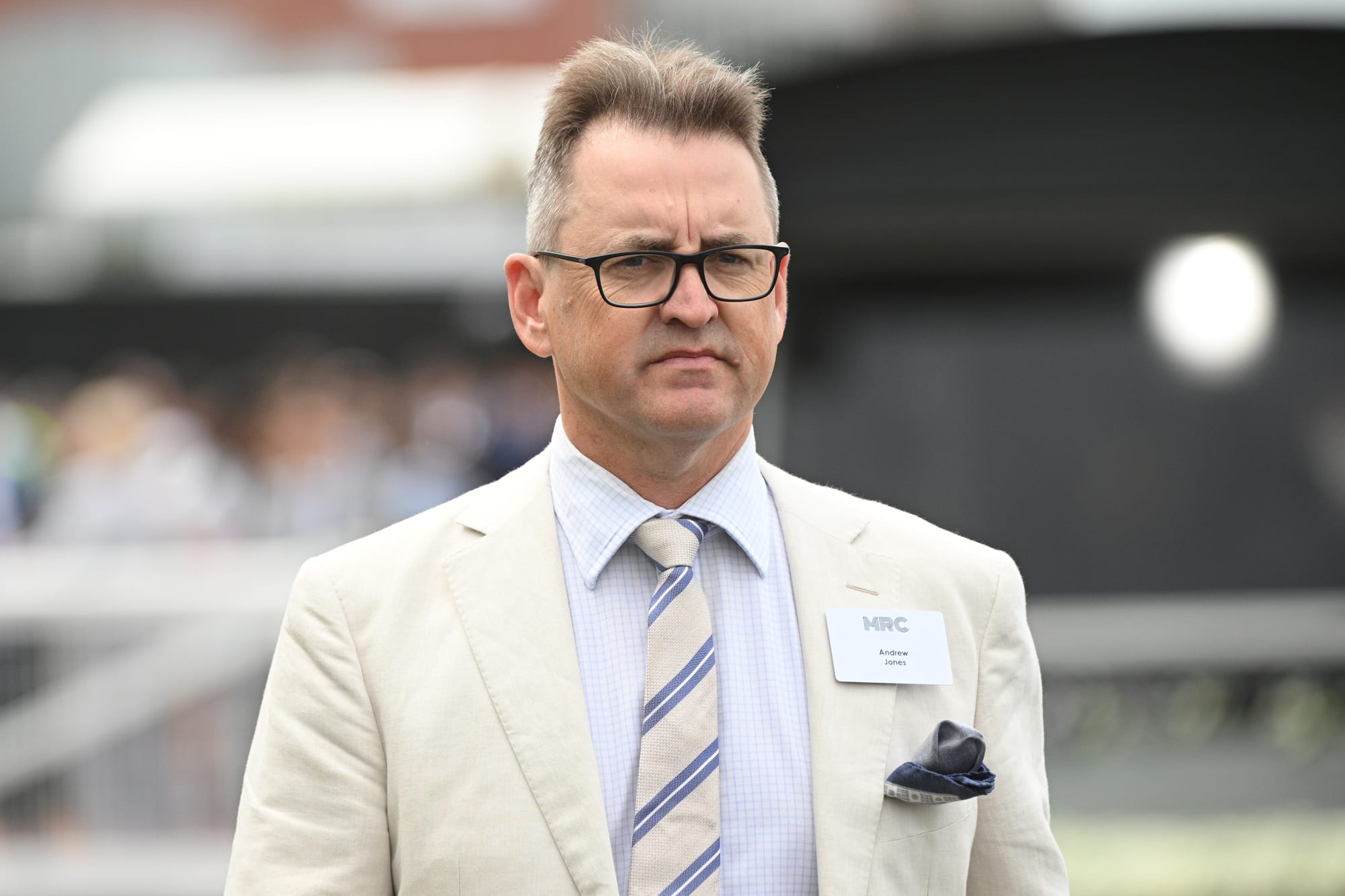
Asked if he needs those key participant groups on his side to achieve the change he wants, Jones gets back to what he sees as the task at hand.
“My job involves two elements. One is growing the pie and two is dividing up the pie, and a lot of the angst is over dividing up the pie, but the real action is in growing the pie,” he said.
He points to a host of decisions he and his team have made, which he insists have driven additional commercial returns for the industry, including the 10th race and movement of features as well as the recent Geelong Saturday standalone meeting.
The majority of participant groups who have spoken to The Straight in recent months see it quite differently. They feel alienated from the strategic decision-making, even after a meeting convened by Racing Victoria in December which was designed to open lines of communication, but instead exposed the divisions within the industry.
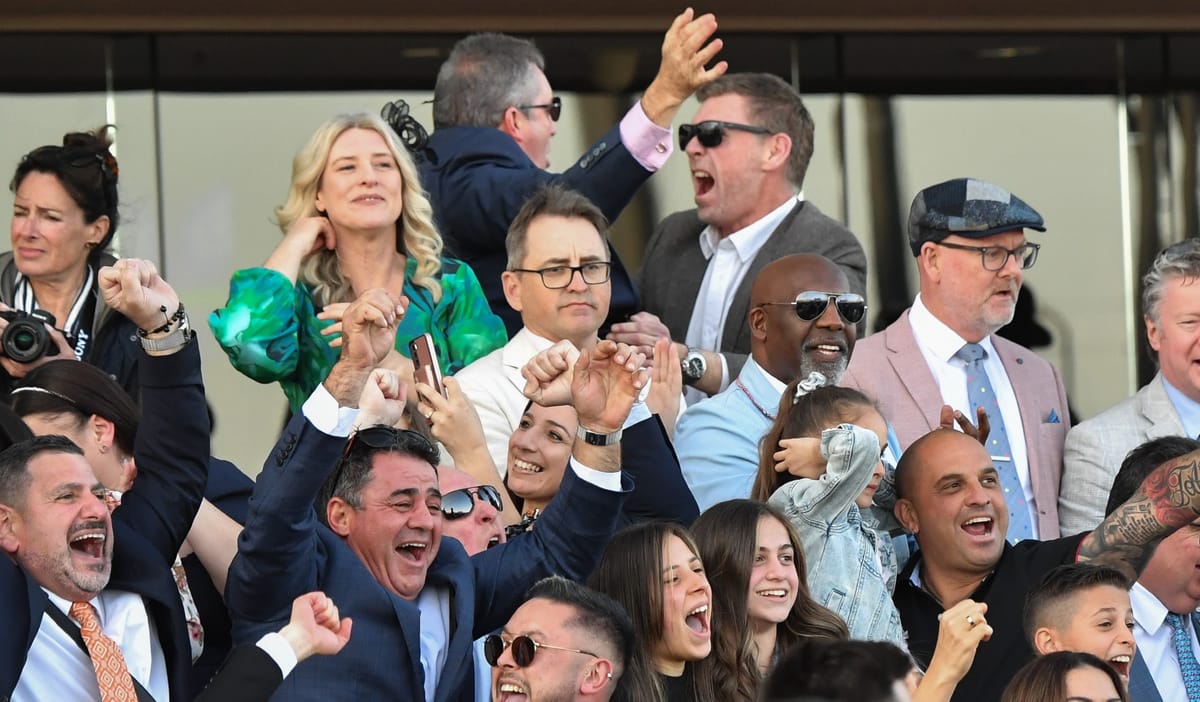
There has been no discernible change in Jones’ language since that point. He may divide opinions, but he says he is more interested in dividing the pie.
“If you are talking about how to allocate $100, every dollar you allocate to one participant group is a dollar you don’t give somewhere else,” he said.
“The essence of most complaints in racing is that somebody else got my dollar. We’ve explained many times, the only way everyone can get what they want is if there are more dollars to allocate, and the only way to do that is to grow the revenue for the sport, and the best way to do that is to grow the fan base.”
So who are these fans that Jones speaks of? Punters, those who wager regularly on the sport, form a key core, but he sees those who bet on other sports as an important area of growth, as well as those who follow other sports. He sees racing in direct competition with mainstream sports such as the football codes and cricket, for the recreational dollar.
You would assume pursuing those ‘fans’ would require Jones to get the broader industry on board, but it’s not clear he thinks it is his role to rally for that support.
"There is a difference between a lack of consultation and a difference of opinions. Mostly what we are talking about is a difference of opinion rather than a lack of consulting" - Andrew Jones
More executive than politician, Jones’ critics say that his single-minded approach in his role in charge of Victorian racing is not in the manner of someone who should be a custodian of the sport. It was a criticism also levelled at his predecessor Giles Thompson.
“I don’t think there is a difference,” Jones said. “If you are a custodian of the sport, your job is to make sure the sport is strong and sustainable over a long period of time.
“To do that, you can’t sit around and do nothing, and hope things will be the same tomorrow as they were yesterday. You have to compete for audience, fans and punters.”
If Jones comes across as having an answer for every question, that’s to be expected from a one-time Sale Of The Century champion and a graduate of Stanford University, who cut his teeth at renowned management consultancy McKinsey.
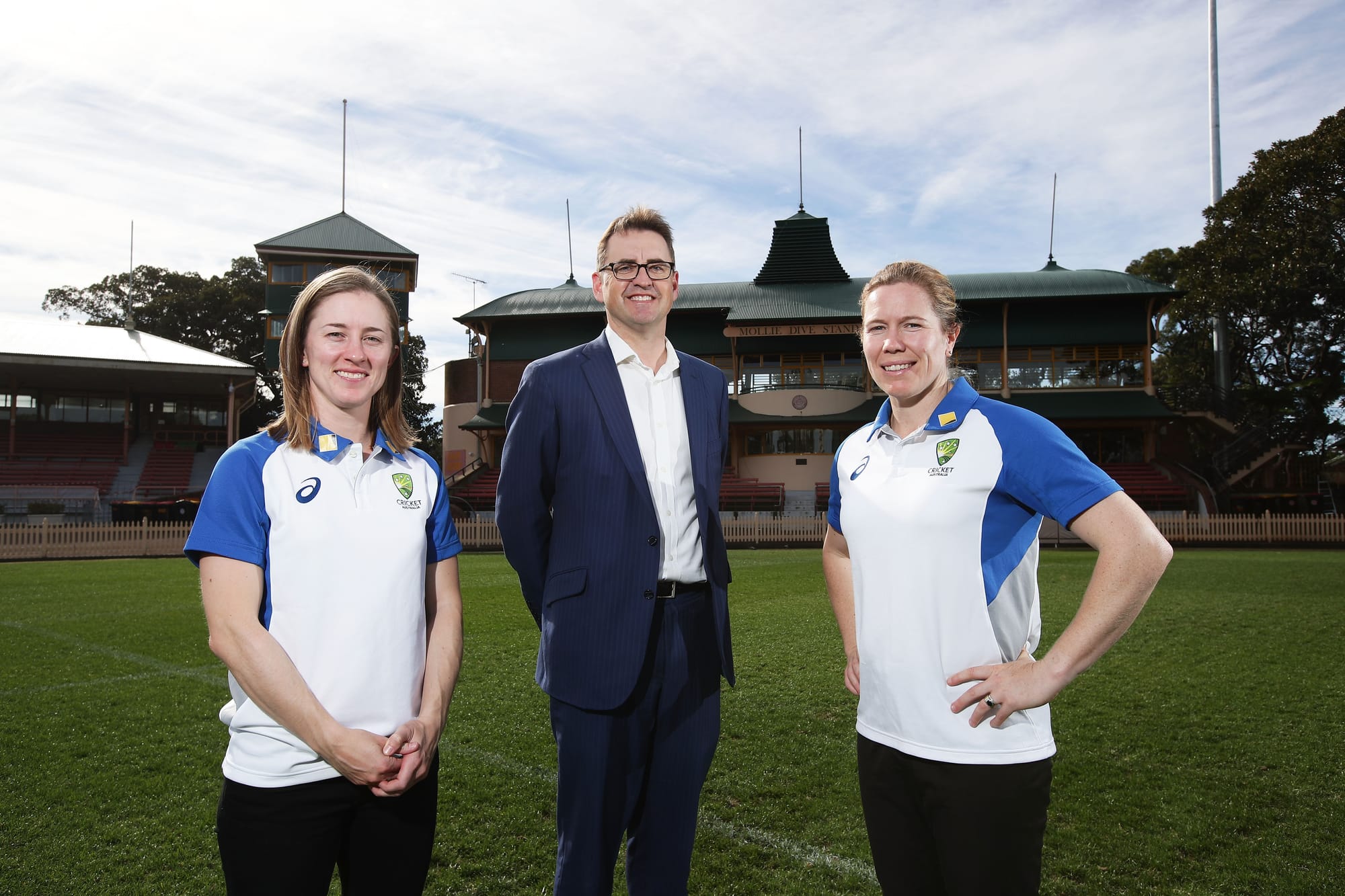
He built a successful career as a sports executive with Cricket Australia and Cricket NSW, before entering the racing industry in April 2021 via a temporary CEO role at Racing.com.
That lack of a racing ‘pedigree’ has been identified by his critics as a deficiency which prevents him from understanding the nuances of the role.
And that perception is not helped by the fact that while Jones is clearly an intelligent and analytical thinker, he is not the ‘people person’ who has prioritised building relationships.
This was 25 years ago today. Very happy memories!!! pic.twitter.com/EjmdTQvgB5
— Andrew Jones (@acxjones) September 20, 2018
The more turbulent moments of his time of CEO have also come since the departure of Racing Victoria chairman Brian Kruger. Mike Hirst has operated as interim chair of the board since, with a successor yet to be chosen by Racing Minister Anthony Carbines.
And Jones' challenges are far from confined to Victorian racing politics, with the long, protracted dispute with Racing NSW spilling over into the courts. Jones’ core goal of growing racing’s fan base can not be helped by the dysfunction of the relationship between Australia’s two biggest racing jurisdictions.
“Our goal is very clearly to have a functioning Racing Australia, that clearly hasn’t been possible, so we are just getting on with what we have to control,” he said.
“It’s that simple. We are not at war with anybody, but if they are at war with us, there is not much we can do about that, other than defend ourselves and press on with what we are doing.”
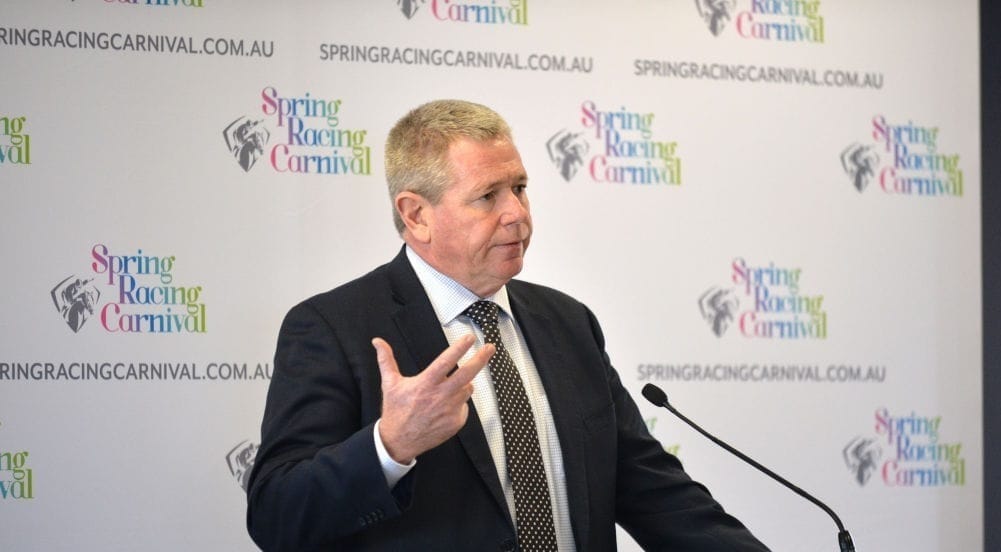
Perhaps the most surprising aspect of the conversation with Jones is that, despite the challenges, both internal and external, he carries a very positive view of the future of racing in Australia.
“(Racing) is only in danger if it doesn’t act. It’s in danger if it does nothing and expects tomorrow to be the same as yesterday. Racing is the fifth sport that I’ve worked in, and it is in a pretty strong strategic position,” he said.
“It has got a reasonably sized fan base and it has a lot of money, but it does need to make sure it is actively focused on growing that fan base.
“If racing does nothing and assumes people are going to just turn up and punt on it, then it will go backwards, but if it continues to be proactive, it can be very successful.”
If Jones’ critics - and there are many - think he will cut and run as the heat increases, they will be sorely disappointed. But while it is clear he has a strong strategic vision, and the desire to see it through to the end, whether he gets the chance to deliver on that is yet to be seen.

